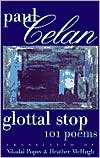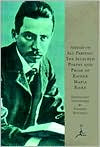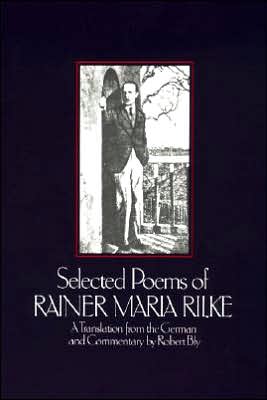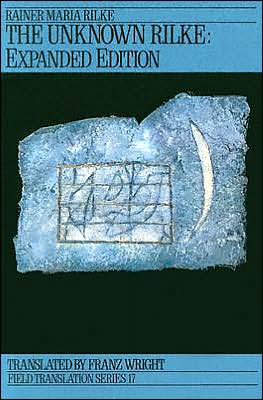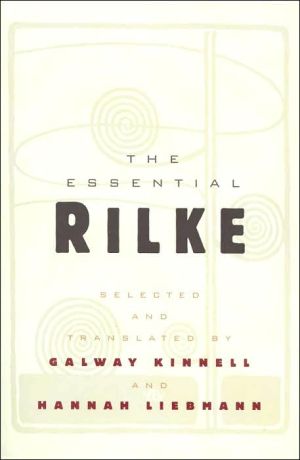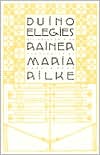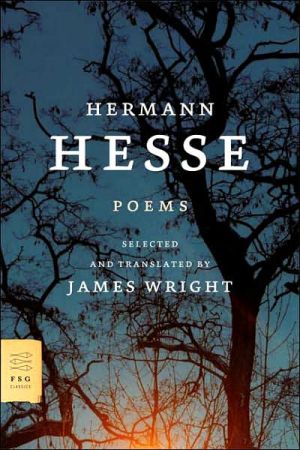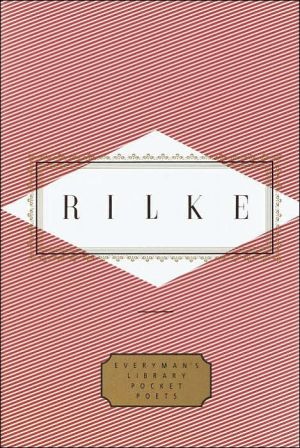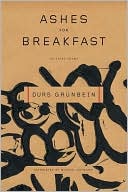Glottal Stop: 101 Poems by Paul Celan
Paul Celan s widely recognized as the greatest and most studied post-war European poet. At once demanding and highly rewarding, his poetry dominates the field in the aftermath of the Holocaust. This selection of poems, now available in paper for the first time, is comprised of previously untranslated work, opening facets of Celan's oeuvre never before available to readers of English. These translations, called "perfect in language, music, and spirit" by Yehuda Amichai, work from the implied...
Search in google:
Rich new translations of one of the most important poets of our time.Publishers WeeklyThough fluent in a number of languages, Celan (1920-1970), who had come to Paris from Romanian Bukovina, pointedly wrote in German after WWII. His decomposition and recasting of that language, through a style that can seem dizzying in its complex poly-referentiality, was compounded by his erudition, by his own history as a Holocaust survivor whose parents were murdered in the camps, and finally by his suicide. For many, he one of the major poets of the 20th century. Though Celan's work presents obvious difficulties for any translator, his English-language readers have long been well-served by Michael Hamburger's starkly graceful selected translations (Poems of Paul Celan, Persea), which remain the best available, and more recently, by Pierre Joris's acute renderings of Celan's later work. Of the new collections here, the volume from Celan biographer and critic Felstiner is easily the most comprehensive, containing ample cullings from all of Celan's books, including many poems not included in Hamburger's selection, along with previously untranslated early and late work and four prose pieces. Felstiner handles these translations competently, rendering Celan in a somewhat more colloquial style than Hamburger or Joris. But his shifting diction (including "Thou") and his tendency to capitalize nouns and to let German words stand untranslated in the English text can make for a distracting admixture, as it does in Celan's much-anthologized early work, "Deathfugue": "Black milk of daybreak we drink you at night/ we drink you at midday Death is a master aus Deutschland." On the whole, Felstiner's efforts often pale beside those of Hamburger and Joris, but the page count of this dual-language collection will make it the default choice of those who will buy only one Celan volume. Popov and McHugh's collection also ranges over Celan's oeuvre, but far less comprehensively or successfully. Unlike Felstiner and Joris, Popov (The Russian People Speak: Democracy at the Crossroads) and poet McHugh (Father of the Predicaments, etc.) don't present the German texts en face, a practice they regard, in their preface, as a potential distraction from the reader's experience of their renderings. It would indeed be a distraction, making painfully clear just how far they depart from the originals to arrive at their idiosyncratic versions, which alter Celan's precise line and stanza lengths significantly, and forsake Celan's vertiginous difficulties for a more simplistic--sometimes macabre or witty--style that's littered with heavy-handed gestures. One poem, for example, contains an ex nihilo insertion gleefully riffing on a German pun, others tip the scales of Celan's carefully weighted pronouns into one viewpoint or another. Even when hewing closer to the source text, Popov and McHugh incessantly heighten the poems' language, degrading their thorniness with more traditional sentiments. Fortunately, many of the poems translated by Popov and McHugh can be found in Joris's new volume, or in his 1995 rendering of Celan's Breathturn, both of which present entire books in razor-sharp, finely nuanced translations. Threadsuns represents the continuation of a marked turn in Celan's poetics--away from lusher effusions to intensely compressed, increasingly stark investigations of language, history and the poet's own capacities. Because much of this later work is serial in nature, Joris's decision to render the books in their entirety is profoundly important, and helps to make them necessary complements to Hamburger's selections. While it may not consistently attain the dazzling heights and depths of Celan's finest work in Breathturn and 1963's The No-One's Rose, Threadsuns contains an abundance of brilliant poems and provides ample evidence for the magnitude of Celan's stature in the last century, and in the one to come. (Nov.) Copyright 2000 Cahners Business Information.
Wet from the world\ the scrapped taboos -- \ and all the bordercrossings between them,\ pursuing\ meaning, fleeing\ meaning
AcknowledgmentsPrefaceVoices, scored into1Summer Report4With wine and being lost, with5Threesome, Foursome6Erratic7Hand-8To one who stood outside the door, one9Flung wood11How low could it go, my once immortal word12Pain, the Syllable13La Contrescarpe15Floated down blackwater rapids17Gray-white of sheer18(I know you: you're the one who's bent so low)19Singable remainder - trace20Flooding, big21Go blind at once, today22Ring-narrowing Day under23At high noon, in25The hourglass buried25Behind the charcoal surfaces of sleep26Go back and add up27Half-mauled, mask-28From fists white with the truth29Noisemakers shoot into the light: it's the Truth30You forget you forget31Crackpots, decomposing32Lichtenberg's heir-33The sight of the songbirds at dusk34Gurgling, then35Frankfurt, September36Coincidence staged, the signs all38Who39Spasms, I love you, psalms40Night in Pau41Later in Pau42The ounce of truth in the depths of delusion43Lyon, Les Archers44Sleep-pieces, wedges45Attached to out-cast46Graygreens47Chitin sunlings48Eternities dead49Hothouse of an asylum50Lucky, the51On the rainsoaked rutted road52White noises, bundled53Your heart manholed54Here are the industrious55When I don't know, when I don't know56Gigantic57Day freed from demons58Husks of the finite, stretchable59Wet from the world60Hush, you hag, and ferry me across the rapids61Eyeshot's island, broken62Eternity gets older: at63It's late. A fat fetish64Come, we are cutting out65Free of dross, free of dross66Soul-blind behind the ashes67Next-door-neighbor Night68The ropes, stiff with salt water69Out of angel flesh, on70Upholster the word-hollows71Walls of speech, space inwards72Four ells of earth73Naked under death leaves74Stone of incest, rolled away75As loud colors, heaped up76The chimney-swallow, sister77White, white, white78Haut Mal79The golfball growth80Windfield bound for winter: this81Who stood that round?82Audio-visual vestiges in83Knock out84Eternities swept85She of the freckled farewells86Degenerate87Assembly-88Weather hand89Nightsources, distant90Unwashed, unpainted91Lilac twilight daubed with yellow windows92You with the dark slingshot93I gave a chance94Proverb on the Wall95The aural apparatus drives a flower96Open glottis, air flow97Raised bog, the shape of98Particles, patriarchs, buried99And force and pain100A reading branch, just one101The cables have already been laid103The splintering echo, darkened104Nowhere, with its silken veil104In the most remote of105O little root of a dream107Don't sign your name108Notes109Index of English Titles/First Lines and German Titles/Half-Titles141
\ Publishers Weekly - Publisher's Weekly\ Though fluent in a number of languages, Celan (1920-1970), who had come to Paris from Romanian Bukovina, pointedly wrote in German after WWII. His decomposition and recasting of that language, through a style that can seem dizzying in its complex poly-referentiality, was compounded by his erudition, by his own history as a Holocaust survivor whose parents were murdered in the camps, and finally by his suicide. For many, he one of the major poets of the 20th century. Though Celan's work presents obvious difficulties for any translator, his English-language readers have long been well-served by Michael Hamburger's starkly graceful selected translations (Poems of Paul Celan, Persea), which remain the best available, and more recently, by Pierre Joris's acute renderings of Celan's later work. Of the new collections here, the volume from Celan biographer and critic Felstiner is easily the most comprehensive, containing ample cullings from all of Celan's books, including many poems not included in Hamburger's selection, along with previously untranslated early and late work and four prose pieces. Felstiner handles these translations competently, rendering Celan in a somewhat more colloquial style than Hamburger or Joris. But his shifting diction (including "Thou") and his tendency to capitalize nouns and to let German words stand untranslated in the English text can make for a distracting admixture, as it does in Celan's much-anthologized early work, "Deathfugue": "Black milk of daybreak we drink you at night/ we drink you at midday Death is a master aus Deutschland." On the whole, Felstiner's efforts often pale beside those of Hamburger and Joris, but the page count of this dual-language collection will make it the default choice of those who will buy only one Celan volume. Popov and McHugh's collection also ranges over Celan's oeuvre, but far less comprehensively or successfully. Unlike Felstiner and Joris, Popov (The Russian People Speak: Democracy at the Crossroads) and poet McHugh (Father of the Predicaments, etc.) don't present the German texts en face, a practice they regard, in their preface, as a potential distraction from the reader's experience of their renderings. It would indeed be a distraction, making painfully clear just how far they depart from the originals to arrive at their idiosyncratic versions, which alter Celan's precise line and stanza lengths significantly, and forsake Celan's vertiginous difficulties for a more simplistic--sometimes macabre or witty--style that's littered with heavy-handed gestures. One poem, for example, contains an ex nihilo insertion gleefully riffing on a German pun, others tip the scales of Celan's carefully weighted pronouns into one viewpoint or another. Even when hewing closer to the source text, Popov and McHugh incessantly heighten the poems' language, degrading their thorniness with more traditional sentiments. Fortunately, many of the poems translated by Popov and McHugh can be found in Joris's new volume, or in his 1995 rendering of Celan's Breathturn, both of which present entire books in razor-sharp, finely nuanced translations. Threadsuns represents the continuation of a marked turn in Celan's poetics--away from lusher effusions to intensely compressed, increasingly stark investigations of language, history and the poet's own capacities. Because much of this later work is serial in nature, Joris's decision to render the books in their entirety is profoundly important, and helps to make them necessary complements to Hamburger's selections. While it may not consistently attain the dazzling heights and depths of Celan's finest work in Breathturn and 1963's The No-One's Rose, Threadsuns contains an abundance of brilliant poems and provides ample evidence for the magnitude of Celan's stature in the last century, and in the one to come. (Nov.) Copyright 2000 Cahners Business Information.\ \ \ \ \ "In 'Glottal Stop,' the translators...take greater risks...but the poetic rewards are...at times breathtaking. One senses the originality of Celan's language in an English that is resourceful and adventurous, not strained. Language comes alive on the page as both vision and sound..."\ \ \ Mark M. AndersonIn Glottal Stop, the translators Heather McHugh and Nikolai Popov (she is a poet, he is a professor of comparative literature) take greater risks than either Joris or Felstiner but the poetic rewards are incomparably greater, at times breathtaking. One senses the originality of Celan's language in an English that is resourceful and adventurous, not strained. Language comes alive on the page as both vision and sound: ''Voices, scored into / the waters' green./ When the kingfisher dives, / the split second whirs.'' Dispensing with Celan's German on the facing page, McHugh and Popov demand that their English versions be read for themselves, without the line-by-line comparison with the original that ''fatally distracts'' the reader's attention from ''the experience of a poem's coursing, cumulative power.'' Their endnotes, more copious than the occasional glosses provided by Joris or Felstiner, give the reader a real sense of the German poem, its philosophical depths as well as the concrete difficulties it poses to translation. \ —New York Times Book Review\ \
